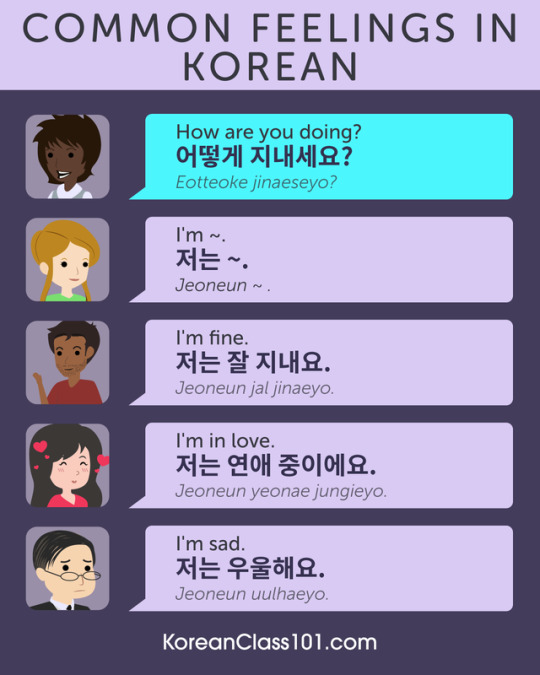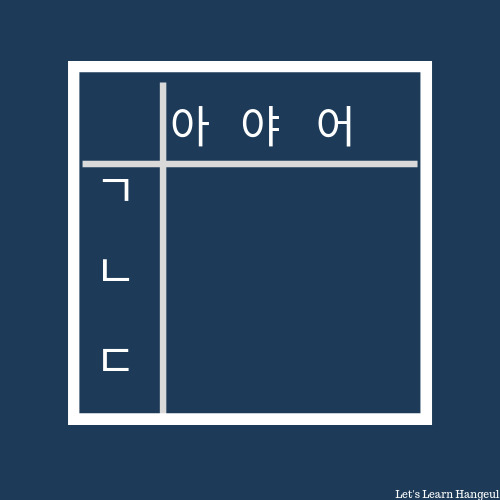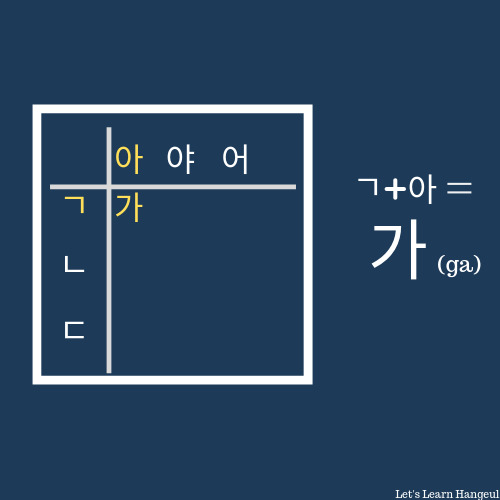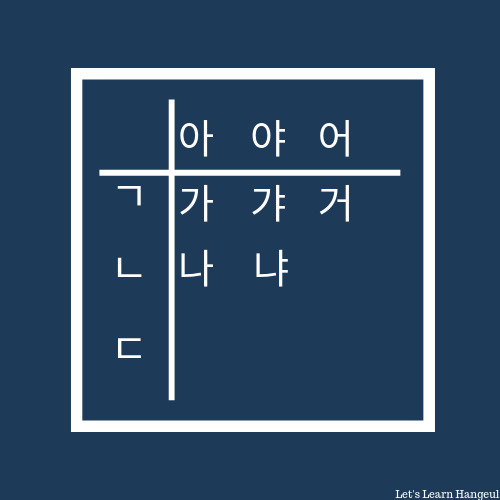Text
Vocabulary: Food and Drink (먹을 것과 마실 것)
안녕! Hi! In this vocab list, We’re going to learn how to say different types of foods and drinks in Korean! This is just a short list, but hopefully you can learn some new vocab! Let’s begin!
Fruit (과일)
Apple = 사과 🍎
Banana = 바나나 🍌
Blackberry = 블랙베리
Blueberry = 블루베리
Cherry = 체리 🍒
Grape = 포도 🍇
Kiwi = 키위 🥝
Lemon = 레몬 🍋
Lime = 라임
Mango = 망고 🥭
Orange = 오렌지
Peach = 복숭아 🍑
Pear = 배 🍐
Pineapple = 파인애플 🍍
Raspberry = 산딸기
Strawberry = 딸기 🍓
Tangerine = 탄제린 / 귤 🍊
Tomato = 토마토 🍅
Watermelon = 수박 🍉
Vegetables (채소)
Asparagus = 아스파라거스
Avocado = 아보카도 🥑
Broccoli = 브로콜리 🥦
Cabbage = 양배추
Carrot = 당근 🥕
Celery = 셀러리
Corn = 곡식 🌽
Cucumber = 오이 🥒
Eggplant = 가지 🍆
Garlic = 마늘
Kale = 케일
Lettuce = 상추
Onion = 양파
Peas = 완두콩
Pickle = 피클
Potato = 감자 🥔
Sweet potato = 고구마 🍠
Pumpkin = 호박
Spinach = 시금치
Grains (곡물)
Bread = 빵 🍞
Rice = 쌀 🍚
Protein (단백질)
Beef = 소고기
Chicken = 닭고기
Egg = 계란 🥚
Fish = 생선
Pork = 돼지고기
Steak = 스테이크
Tofu = 두부
Turkey = 칠면조
Dairy (유제품)
Butter = 버터
Cheese = 치즈 🧀
Milk = 우유 🥛
Sweets (사탕)
Cake = 케이크
Cupcake = 컵케이크 🧁
Frosting = 프로스팅
Candy = 사탕 🍬
Chocolate = 초콜릿
Cookie = 쿠키 🍪
Ice cream = 아이스크림 🍦
Pastry = 페이스트리
Drinks (음료)
Coffee = 커피 ☕️
Juice = 주스
Tea = 차 🍵
Black tea = 홍차
Green tea = 녹차
Soda = 소다
Water = 물
That’s about it for this list! 제일 좋아하는 먹을 것과 마실 게 뭐예요? What’s are your favorite things to eat and drink? Type it in Korean in the comments! See you in the next lesson! 안녕!
1K notes
·
View notes
Photo

Common Feelings in Korean! 😻🙀😿 PS: Learn Korean with the best FREE online resources, just click here: https://www.koreanclass101.com/?src=social_special_infograph_feelings_092419
63 notes
·
View notes
Text
Korean Word Of the Day
집에 잘 도착 했어요?
Jibe-jal-dochag-haessuyo?
Did you get home safely?
71 notes
·
View notes
Text
Korean Word Of the Day
풍경
Poong-gyeong
Scenery
48 notes
·
View notes
Text
학교에 관한 어휘- School Related Vocabulary

ѕтυdenтѕ and ғacυlтy:
•교육-edυcaтιon
•학생-ѕтυdenт
•남학생-мale ѕтυdenт
•여학생-female student
•초등학생-eleмenтary ѕтυdenт
•중학생-мιddle ѕcнool ѕтυdenт
•고등학생-нιgн ѕcнool ѕтυdenт
•대학생-college ѕтυdenт
•대학원생-gradυaтe ѕтυdenт
•신입생-ғreѕнмan
•재학생-regιѕтered ѕтυdenт
•졸업생-gradυaтe
•학생증-ѕтυdenт ιd
•선배-ѕenιor
•후배-jυnιor
•동기-perѕon wнo wιll gradυaтe тнe ѕaмe тιмe aѕ yoυ
•동창- alυмnυѕ
•교사-ѕcнool тeacнer
•선생-тeacнer
•담임-нoмe rooм тeacнer
•교장-prιncιpal
•교감-vιce-prιncιpal
•교수-proғeѕѕor
•총장-cнancellor
•학장-dean
•강사-ιnѕтrυcтor/lecтυrer
•조교-тeacнιng aѕѕιѕтanт/reѕearcн aѕѕιѕтanт
•교실-claѕѕrooм
•교무실-тeacнer'ѕ rooм
•강의실-lecтυre rooм
•양호실-ιnғιrмary
•교내-on caмpυѕ
•도서관-lιвrary
•매점-caғeтerιa
•강당-aυdιтorιυм
•교문-ѕcнool gaтe
ѕcнool and ѕcнool lιғe
•학교-ѕcнool
•국립학교-naтιonal ѕcнool
•사립학교-prιvaтe ѕcнool
•공립학교-pυвlιc ѕcнool
•유치원-kindergarten
•초등학교-elementary school
•중학교-мιddle ѕcнool
•고등학교-нιgн ѕcнool
•학년-year, grade
•학기-semester
•과목-ѕυвjecт
•국어-ĸorean
•영어-englιѕн
•수학-мaтн
•과학-ѕcιence
•생물-вιology
•물리-pнyѕιcѕ
•화학-cнeмιѕтry
•지구과학-earтн ѕcιence
•사회-ѕocιeтy
•국사-ĸorean нιѕтory
•역사-нιѕтory
•경제-econoмιcѕ
•지리-geograpнy
•음악-мυѕιc
•미술-arт
•체육-pнyѕιcal edυcaтιon
•입학하다-тo enтer a ѕcнool
•입학식-ѕcнool enтrance cereмony
•재학하다-тo вe ιn ѕcнool
•졸업하다-тo gradυaтe
•졸업식-gradυaтιon cereмony
•다니다-тo aттend
•등교하다-тo aттend
•출석하다-aттendance
•지각하다-тo вe laтe
•조퇴하다-тo нave an early leave
•결석하다-тo вe aвѕenт ғroм ѕcнool
•학급/반-claѕѕ
•반장-claѕѕ preѕιdenт
•수업-claѕѕ, lecтυre
•시간표-ѕcнedυle
•교시-perιod
•가르치다-тo тeacн
•교과서-тeхтвooĸ
•교재-тeacнιng мaтerιal
•과-leѕѕon, cнapтer
•소풍-eхcυrѕιon
•방학-vacaтιon
•여름 방학-ѕυммer vacaтιon
•겨울 방학-wιnтer vacaтιon
•수학여행-ѕcнool тrιp
•공부하다-тo ѕтυdy
•학습하다-тo learn, ѕтυdy
•예습하다-тo prepare (a leѕѕon)
•복습하다-тo revιew
•외우다-тo мeмorιze
•암기하다-тo мeмorιze
•숙제-нoмeworĸ
•학원-acadeмy
•과외-prιvaтe leѕѕon
•시험-тeѕт
•중간고사-мιd-тerм eхaм
•기말고사-ғιnal eхaм
•성적-grade
•성적표-тranѕcrιpт
•점수-ѕcore, мarĸ
•만점-perғecт ѕcore
•합격하다-тo paѕѕ
•불합격하다-тo ғaιl
υnιverѕιтy and caмpυѕ lιғe
•대학교-υnιverѕιтy
•대학원-gradυaтe ѕcнool
•(학)과-deparтмenт/мajor
•전공하다-тo мajor ιn~
•학위-degree-
•취득하다-тo acqυιre
•학사-вacнelor'ѕ
•석사-мaѕтer'ѕ
•박사-docтoraтe
•학번-ѕтυdenт ιd nυмвer
•학비-ѕcнool eхpenѕeѕ
•등록하다-тo enroll
•등록급-тυιтιon
•납부하다-тo pay
•장학급-ѕcнolarѕнιp
•강의하다-тo lecтυre
•수강하다-тo aттend a coυrѕe
•신청하다-тo apply
•신청서-applιcaтιon
•과정-coυrѕe(oғ ѕтυdy)
•학점-credιт, grade
•과제-нoмeworĸ
•보고서-eѕѕay
•논문-тнeѕιѕ
•동아리-clυв
•동창회-ѕcнool reυnιon
•학생회-ѕтυdenт governмenт
•유학-ѕтυdy aвroad
•어학연수-langυage ѕтυdy aвroad
•학문-ѕтυdy
•학자-ѕcнolar
•인문학-нυмanιтιeѕ
•문학-lιтeraтυre
•역사학-нιѕтory
•철학-pнιloѕopнy
•심리학-pѕycнology
•언어학-lιngυιѕтιcѕ
•사회과학-ѕocιal ѕcιence
•사회학ѕocιology
•경영학-вυѕιneѕѕ adмιnιѕтraтιon
•경제학-econoмιcѕ
•금융-ғιnance
•법학-law
•자연과학-naтυral ѕcιenceѕ
•공학-engιneerιng
•산업 공학-ιndυѕтrιal engιneerιng
•건축학-arcнιтecтυre
•물리학-pнyѕιcѕ
•화학-cнeмιѕтry
•생화학-вιocнeмιѕтry
•수학-мaтн
•의학-мedιcιne
•간호학-nυrѕιng
•교육-edυcaтιon
•회계-accoυnтιng
•농업과학-agrιcυlтυral ѕcιenceѕ
•식물학-вoтany
•식품학-ғood ѕcιence
•축산학-anιмal ѕcιence
•인류학-anтнropology
•민족학-eтнnιc ѕтυdιeѕ
•환대 관리-нoѕpιтalιтy and мanageмenт
•국제 관계-ιnтernaтιonal relaтιonѕ
•영양학-nυтrιтιon
•정치학-polιтιcal ѕcιence
311 notes
·
View notes
Text
Vocabulary: Emotions / Feelings ( 감정)
안녕! Hi! In this vocab lesson, we’re going to learn how to express our feelings in Korean! When learning basic Korean, you may have heard the following expressions using the word 기분, which means “feeling”:
기분이 좋아요. = I feel good (as in “in a good mood”)
기분이 나빠요. = I feel bad (as in “in a bad mood”)
But you don’t always need the word 기분 when expressing emotions. For example, you can just conjugate the adjectives in this list to describe what you’re feeling! (ex. you can say 저는 기뻐요 to mean “I am glad”) Let’s learn some of this vocab!
Positive
To be/feel…
amused = 즐거워하다
appreciative = 고마워하다
confident =자신이 있다
determined = 마음에 두다
energetic = 정력적인
excited = 신이 나다
fascinated = 매료되다
glad = 기쁘다
happy = 행복하다
motivated = 의욕 있다
playful = 장난스럽다
proud = 자랑스럽다
relaxed = 편안하다
Negative
To be/feel…
angry = 화가 나다
annoyed = 짜증이 나다
anxious = 불안해하다
bored = 심심하다
confused = 혼란스러워하다
depressed = 우울하다
disappointed = 실망하다
disgusted = 역겨워 하다
embarrassed = 당황스럽다
homesick = 향수병에 걸리다
jealous = 질투하다
nervous = 긴장되다
pressured = 부담스럽다
sad = 슬프다
scared = 무섭다
shocked = 충격을 받다
sick = 아프다
stressed = 스트레스 받다
worried = 걱정되다
Neutral
To be/feel…
hungry = 배고프다
indifferent = 무관심하다
lazy = 게으름이 나다
surprised = 놀라다
sleepy = 졸리다
tired = 피곤하다
That’s about it for this list! Hope it was helpful! 질문 물어보세요! Please send me any questions you may have! 안녕!
489 notes
·
View notes
Text
Level 1 / Lesson 6: -(으)세요 (Giving Commands / Asking Questions)
안녕! Hi, friends! Welcome to this next Level 1 lesson! I hope these lessons have been helping you out so far! This lesson is an important one because it deals with politely/formally giving commands and asking questions. We attach this -세요 to the ends of verbs to do this! Let’s start!
Using -(으)세요 to Give Polite Commands
Let’s discuss how we can use this pattern to give commands. You hear this sentence ending all the time, especially with those you meet for the first time. The formula for this is quite simple:
verb stem + (으)세요 = Please [verb]
Add 으 to verb stems ending in consonants.
Just add 세요 to those ending in vowels.
-세요 is a shortened version of -셔요, which comes from the suffix -시. In a nutshell, -시 is used to make verbs and adjectives more polite (I may elaborate in a future lesson, but for now let’s just focus on -세요).
If, for example, you are a receptionist at a doctor’s office and want to tell a patient to take a seat in the waiting room, you could say the following:
1. 거기 앉으세요 = Please sit there / Sit there (polite)
앉다 = to sit
앉 + (으)세요 = 앉으세요 = Please sit (could also be translated as just “sit,” but it’s more polite than simply telling someone to sit down)
거기 앉으세요 = Please sit there.
2. 오늘은 공부하세요 = Please study today
공부하다 = to study
공부하 + (으)세요 = 공부하세요 = Please study
오늘은 공부하세요 = Please study today.
3. 많이 드세요 = Please eat a lot
드시다 = polite version of 먹다, which means “to eat”
Because 드시다 is already a politer version of a verb, it can be just be conjugated as 드세요. Don’t say 먹으세요!
Waiters/waitresses will often say this phrase when they serve food to customers, so it’s good to know!
I’m sure you’re familiar with the phrase “주세요” as well, which literally means “please give [me]”. You can attach 주세요 after any noun to politely ask for it. Let’s look at an example:
4. 계선서 주세요 = Please give me the bill
계선서 = bill
주다 = to give
주 + (으)세요 = 주세요 = Please give me
계선서 주세요 = Please give me the bill / May I have the bill, please?
5. 짜장면 일이분 주세요 = Please give me one serving of jjajangmyun
짜장면 = jjajangmyun (Korean black bean sauce noodles)
일이분 = one serving (simply attach 이분 to a Sino-Korean number to say the number of servings you want. If you want two servings, for example, say 이인분)
주 + (으)세요 = 주세요 = Please give me
짜장면 일이분 주세요 = Please give me one serving of jjajangmyun / May I have one serving of jjajangmyun, please?
Using -(으)세요 to Politely Ask Questions
-세요 can also be attached to the ends of sentences to ask questions politely. These can be open- or close-ended. For instance:
1. 어디 가세요? = Where are you going?
가다 = to go
가 + (으)세요 = 가세요 = Please go
Because there is a question mark on the end of this sentence, it simply becomes a more polite question rather than a command. Thus, “가세요?” would mean “Do you go?” or “Are you going?”
어디 가세요? = Where are you going?
2. 확실하세요? = Are you sure?
확실하다 = to be sure / to be certain
확실하 + (으)세요 = 확실하세요 = Please be sure
확실하세요? = Are you sure?
-(으)십시요: An Even More Formal Version of -(으)세요
-(으)십시요 is the same thing as -(으)세요, but is a very formal way of giving commands. You may not hear it as much as -(으)세요, but I just wanted to make note of it so you could recognize it in case you do come across it. It’s still a pretty common sentence ending, so it’s good to know! The formula for adding it to verbs is pretty much the same:
Verb stem + (으)십시요 = Please [verb]
Add 으 to verb stems ending in consonants.
Just add 십시요 to those ending in vowels.
For example:
계선서 주세요 = 계선서 주십시요
거기 앉으세요 = 거기 앉으십시요
The meanings of these two versions are the same, but those ending in -(으)십시요 are incredibly formal, so you should definitely use it when giving commands to those who deserve an extreme amount of respect.
That’s it for this lesson! I hope it helped! It’s good to know how to give commands and ask questions politely in Korean, so definitely keep these patterns in mind! 많이 공부하세요! Please study a lot! 질문을 하세요! Please ask questions too, if you have any! See you in the next lesson! 안녕!
379 notes
·
View notes
Link
Here is the full google spreadsheet with all of the words I used in my quizlet decks. Feel free to use this to make your own flashcards based on your own learning preferences or levels! I hope this helps you in your learning! 여러분, 파이팅!
456 notes
·
View notes
Text
List of words in ~거리다
~거리다 (그런 상태가 계속됨) - suffix that means "continuously being in that state" and makes the word a verb.
중얼거리다 to mumble
투덜거리다 to grumble
까불거리다 to speak and act carelessly
깔깔거리다 to laugh loudly
반짝거리다 to sparkle
깜박거리다 to twinkle
방실거리다 to smile brightly and softly
출렁거리다 to be sloshing
흔들거리다 to be shaking
머뭇거리다 to hesitate
두리번거리다 to look around
끈적거리다 to be sticky
찐득거리다 to be gluey
허우적거리다 to flounder
꼬르륵거리다 to be growling (sound in the stomach to be made when one is hungry)
갸웃거리다 to tilt one's head
조잘거리다 to keep talking quickly with a small voice
끙끙거리다 to suffer from an anxiety
뒹굴거리다 to fool around
따끔거리다 to be stinging
431 notes
·
View notes
Text

Memorizing and learning the Korean alphabet is one of my most frequently asked questions. Today let’s review strategies on how to master hangeul (한글)!

First, it’s useful to set up the alphabet in a table like this where you have consonants (자음) on the left side going from top to bottom, and vowels (모음) at the top of the page from left to right.
Most Korean alphabet sheets are set up this way and I’ll be using the first 3 consonants (ㄱ/g, ㄴ/n, ㄷ/d) and first 3 vowels (아/a, 야/ya, 어/eo) in the following examples to demonstrate why as well as why this makes learning the alphabet easy.

Let’s take the first consonant ㄱ(g) and first vowel 아(ah). Right away we notice that the intersection of those letters is 가 (ga). We know this because:
ㄱ(g) + 아(ah) = 가.
This can be done with the following consonant as well where we see that:
ㄴ(n) + 아(ah) = 나.
This can be repeated for all 14 consonants as you move vertically down the line.

So, if you know that ㄱ(g) + 아(ah) = 가(ga), do you know what sounds make 갸? Yes! Because just as we got:
ㄱ(g) + 아(ah) = 가(ga), the same rule applies where
ㄱ(g) + 야(ya) = 갸(gya), and ㄴ(n) + 야(ya) = 냐(nya).
“So how should I practice?”
Well, now that we have the basics down, you can learn the alphabet quickly by practicing writing out each consonant and vowel combination together 10 times saying them aloud as you write.
First write down each consonant:
ㄱ(g): ㄱ ㄱ ㄱ ㄱ ㄱ
ㄴ(n): ㄴ ㄴ ㄴ ㄴ ㄴ
ㄷ(d): ㄷ ㄷ ㄷ ㄷ ㄷ
etc.
Then write down each vowel:
아(a): 아 아 아 아 아
야(ya): 야 야 야 야 야
어 (eo): 어 어 어 어 어
etc.
Then put them together:
가(ga): 가 가 가 가 가
나(na): 나 나 나 나 나
다(da): 다 다 다 다 다
etc.
Within no time you’ll have mastered the alphabet and will be able to read anything you see!
Hope this helps and happy studying!
799 notes
·
View notes
Text
The Basics #4: Present-Tense Conjugations and Formal Language
안녕, 여러분! Hey, everyone! Welcome to our new Basics lesson! In this lesson, I’m going to teach you about present-tense conjugations and speaking formally. Let’s discuss formalities first.
Formal Language (존댓말)
In Korean, formal language (known as 존댓말) is extremely important! When should you use it? As a general rule, use it when you meet anyone for the first time. You MUST use it when you are speaking to someone older than you as well! Respect for elders, or anyone who is older than yourself, is super important in Korean culture! If you are speaking to someone and it’s unclear who is the older one, start by speaking formally anyway–better safe than sorry! When you meet someone for the first time, they may ask for your age (if it’s not obvious who’s older), and the older one of you might be able to drop the formal language. When in doubt, however, speak formally!!
When speaking to your friends or those younger than you, you may be able to drop formalities. This is referred to as casual language, or 반말. I’ll make a future lesson about 반말 soon, but let’s stay formal for now!
So what is 존댓말 anyway? In the previous lessons, you may have noticed that many sentences end with -니다 or -요, such as these:
제 이름은 미셸입니다. My name is Michele.
저는 열일곱 살이에요. I am 17 years old.
Verbs with these sorts of conjugations are formal. -니다 is extremely formal, while -요 is kind of like the “default” sort of language you would use. In an extremely formal setting, use -니다. If it’s just an everyday situation like speaking to a clerk at a store, you can use -요. Don’t worry too much about sounding “too formal”–I don’t really think there’s such a thing lol (someone correct me if I’m wrong please). Again, better safe than sorry!
Also mentioned in previous lessons, I noted that there are formal ways of addressing yourself. Here they are:
저는 = I
제가 = I/me (depending on sentence)
저를 = me
제 = my
Now that we talked about the basics formal language, let’s examine how these formal verb endings come into play in present-tense verb conjugation!
Present-Tense Conjugations
Before we begin, let me introduce you to some basic verbs you here all the time in Korean:
이다 = to be
아니다 = to not be
있다 = to be there/to have/to be in a location
없다 = to not be there/to not have/to not be in a location
(I know 있다 and 없다 seem to have a lot of meanings, but I’ll clarify in a bit.)
As a general rule, this is the “formula” for conjugating verbs formally (with 요) in the present-tense. There are some exceptions, but this applies to most verbs:
verb - 다 + 어요
ex. 있다 - 다 + 어요 = 있어요 = It’s there/there is…/I have it/the subject is at [location]
example sentences: 펜이 있어요 = I have a pen/ There is a pen
집에 있어요 = I/you/he/she/them/it is at home
숙제가 있어요 = There’s homework/ I have homework
펜이 없어요 = I don’t have a pen
집에 없어요 = I am not home
숙제가 없어요 = There is no homework/ I don’t have homework
verb - 다 + 아요 (for verbs ending in 아 or 오 only)
ex. 오다 (to come) - 다 + 아요 = 와요 (think of it as 오아요 but pronounced quicker) = I/he/she/they/it/you come(s)
verb - 다 + 여요 (for verbs ending in 하 only)
ex. 하다 (to do) - 다 + 여요 = 해요 (pronounced hae-yo) = I/he/she/they/you/it do(es)
*Notice how these conjugations don’t focus on the number of people/objects you’re referring to, but rather just the tense and formality.
There are exceptions to this, such as 이다 and 아니다, which are conjugated as:
이에요 (for nouns ending in a consonant)
ex. 집이에요 = It is a house
예요 (for nouns ending in a vowel)
ex. 고양이예요 = It is a cat
아니예요 = it/I/she/he/they are/is not
ex. 책아니예요 = it is not a book
-니다 Conjugations
You likely won’t need to use these conjugations too often, but it’s still good to know:
verb -다 + ㅂ니다 (for verbs ending in a vowel)
ex. 가다 -다 + ㅂ니다 = 갑니다
verb -다 + 스니다
ex. 먹다 -다 + 스니다 = 먹습니다
Regardless of which conjugation you use, there is no difference in meaning. The only difference is the level of formality!
Wow, that was a long lesson! I hope it wasn’t too overwhelming and that it was helpful! Please take your time if you need too–there’s no need to rush! As always, don’t hesitate to ask me any questions!! 안녕!
636 notes
·
View notes
Text
Vocabulary: Autumn (가을)
안녕! Hi! It’s early September as of when I’m posting this, meaning that the fall season is rapidly approaching! Let’s learn some autumn-related Korean vocabulary!!
Nouns
Apple = 사과
Apple cider = 사과 사이다
Apple pie = 애플파이
Autumnal equinox = 추분
Blanket = 담요
Brown = 갈색
Candle = 양초
Candy = 사탕
Candy corn = 캔디 콘
Chocolate = 초콜릿
Cinnamon = 계피
Cookies = 쿠키
Costume = 분장
Chuseok = 추석
Chuseok is Korean Thanksgiving. This year, it will take place from September 12 to September 14.
Decoration = 장식품
Family = 가족
Fireplace = 벽난로
Ghost = 귀신
Halloween = 할러윈
Horror movie = 공포영화
Fallen leaves = 낙엽
Lollipop = 막대사탕
Orange = 주황색
Party = 파티
Pine cone = 솔방울
Pumpkin = 호박
Jack-o-lantern = 호박초롱
Pumpkin pie = 호박 파이
Pumpkin spice latte = 펌킨 스파이스 라떼
Red = 빨간색
School = 학교
학교가 시작되다 = school starts
Skeleton = 뼈대
Spider = 거��
Sweater = 스웨터
Thanksgiving = 추수감사절
This word refers to American Thanksgiving
Trick-or-treat = 과자를 안 주면 장난칠 거예요
Literally translates to “if you don’t give me snacks, I’ll prank you” (or something along those lines lol)
Turkey = 칠면조
Vampire = 뱀파이어
Witch = 마녀
Yellow = 노란색
Zombie = 좀비
Verbs
to bake = 굽다
to carve a pumpkin = 호박을 조각하다
to dress up = 변장을 하다
to pick apples = 사과를 따다
to trick-or-treat = trick or treat 놀이를 하다
Adjectives
to be chilly = 쌀쌀하다
to be cool = 시원하다
to be scary / scared = 무섭다
to be thankful = 고마움을 느끼다
Literally means “to feel thanks”
to be warm = 따뜻하다
That’s about it for this list!! See you in the next lesson! 화이팅!
642 notes
·
View notes
Text
my korean apps
hello everyone :) in this post I want to share which apps I use to study korean on the go. I actually had around two dozen apps related to korean on my phone, but no person could use all of them together, so I limited it down to only 12 apps
of course, some of those I haven't used in ages, but I do think they're useful from time to time


LingoDeer
I cannot stop raving about this app, their courses are so well thought through, they teach grammar well and the sample sentences are actually useful!
Memrise
there's nothing new about memrise, I use it because it has all 10 ttmik levels on there, with audio recordings and grammar explanations. @ whoever created that memrise course, I'll love you forever
NAVER dictionary
it's not just a dictionary, it has the papago translator integrated, there are podcasts, each day there's a "word of the day" and "global sentences" where you can learn not only a new sentence, but also view entire sample conversations
KORLINK
it's an app that compiles all ttmik pdf lessons
Beelinguapp
this app has many well known (short) stories and even fairytales which you can read in your native and target language side by side. if you want you can listen to the audio recordings as well, and even slow them down if you need
Grammar Haja
okay this app is amazing, it has nearly all grammar of the korean language, gives in-depth explanations and sample sentences. there's even a "confusing grammar" section where the difference between, well, confusing grammar points is explained
Hanji
you can type in a english or korean verb in any conjugation and it will not only give you the translation (they aren't always on point tho), but also all the possible conjugations for the verb. it includes all tenses, politeness levels and all possible suffixes
HiNative
HiNative allows you to ask questions about a country or a language to natives. you can phrase any question or use the options provided, such as 'does this sound natural', 'what's the difference between x and x' etc. you can even record your pronunciation or ask natives to send you a audio recording
HelloTalk
this app is mostly about language exchange, so making friends with natives or finding a studdy buddy. you can also post pictures and texts or read others public entries as reading / writing practice. if you want to meet up with someone you can enter your location and see who's near, but beware of the creeps that are on this app and stay safe
세종한국어 apps
these apps are provided by the king sejong institute foundation. there are different apps for different levels, but I downloaded the 회화 초급 and 문법 초급 (conversation and grammar for beginners) as well as the beginner to intermediate vocabulary app. I haven't really taken the time to go through the first two apps to check if there are basics that I still don't know by now, but I'm planning to check that once I have the time. so far I think these apps would be a really good way for beginners to ease into the language and learn the basics. they also provide mini games where you can test your knowledge

that's it for now, I hope you enjoyed this little 'tour' of my korean apps. if you have any questions, feel free to leave a message in my ask :)
have a lovely day everyone 🌸🌺
831 notes
·
View notes
Text
얼마나 자주 - How often
언제나 / 항상 - Always
자주 - Often
가끔 - Sometimes
보통 - Usually
별로 (+안) - (not) Really/very much
거의 (+안) - Almost (never)
전혀 (+안) - (not) At all
결코 - Never
매주 - Every week
매일 - Every day
늦게 - Lately
요즘 - These days
꼭 - Without fail/certainly
그동안 - In the mean time
매주 얼마나 자주 운동해요? - How often do you exercise each week?
요즘 별로 운동을 안해요 - I don’t exercise much these days
저는 보통 주말에 일어요 - I usually work on the weekends
저는 매주 춤을 연습해요 - I practise dancing every week
제가 요즘은 텔레비전을 거의 안 봐요 - I almost never watch television these days
제 친구가 항상 공부하는데 저는 보통 공부를 안해요 - My friend always studies but I usually don’t study
저는 보통 학교에 가기 위해 일찍 일어나지만, 오늘은 우연히 늦게 일어났어요 - I usually get up early to go to school, but today I accidentally got up late
⏰A&R⏰

1K notes
·
View notes
Photo

요리하기 어휘 - Cooking Vocabulary
Hi there! I realize I haven’t posted any big vocabulary posts in a while, so I think it’s worth giving you guys a little break from grammar! Enjoy <3
Vocab // 어휘 [mostly korean foods]
음식 - food
~ 한식 - korean food [한국 + 음식]
고기 - meat
~ 물고기 - fish [lit. water meat] ** not the same as 해물 - seafood **
~ 불고기 - korean marinated beef
~ 닭고기 - chicken
~ 소고기 - beef
소시지 - sausage
밥 - rice / meal
~ 볶음밥 - fried rice
국 // 탕 // 갱 - soup
1. 국 - side dish soup [example: 미역국 - seaweed soup! this is very popular at birthday celebrations]
2. 탕 // 갱 - full meal soup [example: 감자탕 - pork bone soup]
** you might get a side of 국물 [broth] with a main dish **
찌개 // 전골 - stew
1. 찌개 - thicker stew [example: 김치찌개 - kimchi stew]
2. 전골 - hotpot [example: 소고기전골 - vegetable and beef hotpot]
건더기 - ingredients in soup [like vegetables, meat, sauce]
** to help with understanding the difference between 국 and 찌개, you won’t get much 건더기 in a 국 like soup **
어묵 - fish cake
전 - korean pancake
~ 파전 - green onion korean pancake (my favourite)
떡볶이 - stir-fried rice cake
순대 - pork blood sausage
만두 - dumplings
김밥 - for lack of better words, korean styled sushi [lit. rice wrapped in seaweed - 김]
Verbs // 동사
요리하다 - to cook
다듬다 - to prepare
썰다 - to chop / cut
섞다 - to mix [not to be confused with 썩다 - to rot]
젓다 - to stir
반죽하다 - to knead dough
붓다 - to pour
까다 [벗기다] - to skin / peel [to peel / skin meat]
데우다 - to heat
태우다 - to burn
볶다 - to stir-fry
굽다 - to roast / grill
찌다 - to steam
식다 - to cool down
낳다 - to add
기름을 두르다 - to oil
간을 보다 - to taste test
끓다 - to boil
More Vocab // 더 어휘
오븐 - oven
칼 - knife
도마 - cutting board
냄비 - pot
프라이팬 - frypan
밥솥 - rice cooker
Example Sentences:
요즘 한식을 요리하고 싶어요 - these days, I want to cook korean food
10분 만두를 쪄요 - steam dumplings for 10 minutes
건더기를 김치찌개에 넣어요* - add the ingredients into the kimchi stew
어묵을 썰고 끓은 물에 넣어요* - slice the fish cake and add into boiling water
*you can pronounce 넣어요 like -> 너요
That’s it for this lesson today! I hope you enjoyed and you learned something! What’s your favourite Korean food?
Happy Learning :)
~ SK101
2K notes
·
View notes
Text
Vocabulary: Must-Know Verbs
안녕, 여러분! Hey, y’all! Welcome to this vocab list! I want to show you some basic and important verbs (action words) that you might hear in everyday Korean. I know this list is pretty long, but take your time with it–there’s no rush! Let’s build up our vocab!!
가다 = to go
가져가다 = to take (something)
가져오다 = to bring (something)
걷다 = to walk
공부하다 = to study
가르치다 = to teach
날다 = to fly
나가다 = to go out
나오다 = to come out
놀다 = to play/to hang out (w/someone)
느끼다 = to feel
들어가다 = to go in
들어오다 = to come in
달리다 = to run
들다 = to listen/to hear
뛰다 = to run/to jump
만들다 = to make
먹다 = to eat
마시다 = to drink
받다 =to receive (can also mean to pick up a phone call)
보다 = to see/to watch/to look
부르다 = to call/to sing (would be conjugated in the present tense as 불러요)
배우다 = to learn
사다 = to buy
살다 = to live
사랑하다 = to love
샤워하다 = to shower
싫다 = to hate/to not like/to not want
수영하다 = to swim
알다 = to know
이다 = to be
아니다 = to not be
일하다 = to work
있다 = to have/to be there
없다 = to no have/to not be there
오다 = to come
웃다 = to smile/to laugh
울다 = to cry
운전하다 = to drive
운동하다 = to exercise
요리하다 = to cook
전화하다 = to call (on the phone)
좋아하다 = to like
주다 = to give
자다 = to sleep
찾다 = to find/ to look for
청소하다 = to clean
하다 = to do
우와! Wow, this is a long list! I thought all of these verbs were pretty important/useful, but you can focus on the ones you find most important :). I hope this was helpful to build up your vocabulary! Thanks for studying with me! 안녕!
2K notes
·
View notes
Text
Vocabulary: Must-Know Adjectives
안녕, 여러분! In this vocab list, I want to present some very important adjectives to build your beginner vocabulary! 시작해볼까요? Shall we start?
기쁘다 = to be happy/to be glad
길다 = to be long
as in physical length
to describe a noun, drop the ㄹ to make 긴
Ex. 긴 머리 = long hair
귀엽다 = to be cute
괜찮다 = to be okay
그렇다 = to be like that/to be so
conjugated in the present tense as 그래요
그래요 actually can be used to mean “yes” or “sure.” You can think of it as “yes, that is so.”
그래요 can also be used as a question: “그래요?” It can be translated as “really?” or “is that so?”
나쁘다 = to be bad
느리다 = to be slow
다르다 = to be different
conjugated in the present tense as 달라요
덥다 = to be hot
used to describe weather
똑똑하다 = to be smart
뜨겁다 = to be hot used to describe an object. Ex. 뜨거운 커피 = hot coffee
맛있다 = to be delicious
맛없다 = to taste bad
많다 = to be many/to be a lot
멋있다 = to be cool
as in something that is “awesome” or “great” (as opposed to temperature lol)
못 생겼다 = to be ugly
conjugated in the present tense as 못 생겼어요—literally means “came out bad”
빠르다 = to be fast
conjugated in the present tense as 빨라요
비싸다 = to be expensive
슬프다 = to be sad
싸다 = to be cheap
새롭다 = to be new
쉽다 = to be easy
시끄럽다 = to be loud/to be noisy
예쁘다 = to be pretty
아름답다 = to be beautiful
어렵다 = to be difficult
오래되다 = to be old
used to describe an object.
Ex. 오래된 책 = old book
이렇다 = to be like this
conjugated in the present tense as 이래요
작다 = to be small
잘 생기다 = to be good-looking
conjugated in the present tense as 잘 생겼어요—literally means “came out well”
좋다 = to be good
짧다 = to be short
as in physical length
ex. 짧은 치마 = short skirt
조용하다 = to be quiet
착하다 = to be kind
차갑다 = to be cold
used to describe an object
Ex. 차가운 물 = cold water
춥다 = to be cold
used to describe weather
크다 = to be big
특별하다 = to be special
편하다 = to be comfortable
화가 나다 = to be angry
행복하다 = to be happy
Another long vocab list, huh? Building some basic vocabulary is important, so I hope these many adjectives helped! See you in the next lesson! 안녕!
2K notes
·
View notes